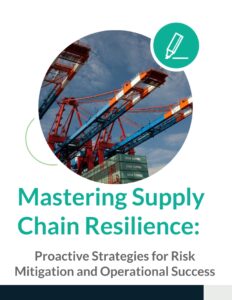A Year of Change How We Transformed Businesses in 2024
In an era marked by rapid technological advances and shifting market dynamics, business transformation has become more critical than ever. The year 2024 stood out as a landmark in operational excellence, with companies across various industries reaping the benefits of strategic interventions and cutting-edge technology. Through case studies, we’ll explore how we at CPC successfully transformed businesses, enhancing productivity and operational efficiency. These stories not only showcase the power of technology infrastructure and process mapping but also illustrate tangible impacts that highlight the importance of being adaptive in today’s marketplace.
The Power of Business Transformation
Business transformation is not just a buzzword; it’s a necessity for survival and growth in an increasingly competitive environment. Organizations face mounting pressures to innovate and adapt, and those who leverage transformation strategies are more likely to thrive. In 2024, businesses across sectors embraced transformation to redefine their processes and achieve operational excellence. By focusing on strategic goals and aligning resources towards these objectives, businesses can create a robust framework for sustained growth and success.
CPC, a mission-driven consultancy firm, exemplified how targeted interventions could revolutionize business operations. Through bespoke solutions tailored to each client’s needs, we successfully led transformation initiatives in financial services, contact centers, and law firms, creating a ripple effect of positive change throughout these industries.
Case Study Transforming Financial Services
In 2024, we took on a mission-driven financial services organization facing challenges in adapting to technological advancements. With outdated systems and inefficient processes, the company struggled to maintain a competitive edge. Our intervention focused on overhauling its technology infrastructure, introducing cutting-edge tools to streamline operations and improve productivity.
By implementing advanced automation tools, data analytics, and process mapping techniques, we facilitated a 46% boost in productivity for the organization. The new technology infrastructure allowed employees to focus on value-added tasks, reducing manual efforts and freeing up time for strategic decision-making. This transformation empowered the company to better serve its clients, driving growth and innovation within the industry.
Automated Efficiency in Remote Contact Centers
The rise of remote work has posed unique challenges for businesses, especially those in customer service roles. A remote contact center sought our expertise to optimize operations through automation and achieve greater efficiency. With a dispersed workforce and high volumes of customer inquiries, the company needed a solution to streamline processes and enhance response times.
We introduced automation technologies to handle routine inquiries and support agents in their daily tasks. This strategic intervention resulted in a 36% increase in efficiency, allowing the contact center to handle higher volumes of inquiries with greater accuracy and speed. Not only did this enhance customer satisfaction, but it also enabled the company to allocate resources more effectively, focusing on complex issues that required human intervention.
Revitalizing a Law Firm Through Strategic Interventions
Law firms are often bogged down by traditional processes and bureaucratic inefficiencies. In 2024, we partnered with a renowned law firm to revitalize its operations through strategic interventions. The firm’s challenges stemmed from outdated processes and a lack of streamlined communication across departments.
Our approach involved process mapping to identify bottlenecks and areas for improvement. By implementing new technology infrastructure and reorganizing workflows, the law firm experienced a 15% enhancement in overall effectiveness. This transformation allowed the firm to allocate resources more efficiently, improve client service, and stay ahead of the competition in a rapidly changing legal landscape.
The Role of Technology Infrastructure in Business Success
In each of these case studies, a common theme emerges the pivotal role of technology infrastructure in driving business success. Investing in robust technology ecosystems allows organizations to stay agile, leveraging real-time data insights and automation to streamline operations. In 2024, businesses that embraced technological advancements found themselves better equipped to respond to market changes and customer demands.
Technology infrastructure serves as the backbone of operational excellence, enabling businesses to optimize processes, reduce costs, and drive innovation. By integrating technology into every aspect of their operations, companies can create a culture of continuous improvement, fostering collaboration and enhancing productivity across the board.
Process Mapping: Unveiling Hidden Opportunities
Process mapping is a powerful tool that helps businesses uncover inefficiencies and identify opportunities for improvement. By visually representing workflows and meticulously analyzing each step, organizations can gain a deeper understanding of their operations, allowing them to make informed decisions that enhance both efficiency and effectiveness. This method not only highlights the existing processes but also reveals bottlenecks and redundancies that may be hindering performance.
Our success in transforming businesses in 2024 can be attributed to our strong emphasis on process mapping as a foundational strategy. By meticulously analyzing each client’s workflow, we were able to identify specific pain points and areas for enhancement. This comprehensive understanding enabled CPC to develop tailored solutions that addressed unique challenges faced by each organization.
Additionally, our process mapping initiatives incorporated feedback from employees at all levels, ensuring that the solutions were not only effective but also practical and sustainable. This methodical approach empowered businesses to achieve operational excellence, streamline processes, and unlock hidden potential, ultimately leading to improved productivity and profitability. By continuously refining and adapting our process mapping techniques, we are committed to helping organizations thrive in an ever-evolving business landscape.
The Human Element of Collaborative Transformation
While technology plays a crucial role in business transformation, the human element remains equally important and cannot be overlooked. Effective collaboration and meaningful engagement are key to successful change management, as they ensure that employees are not only aligned with organizational goals but also motivated to adapt to new processes and workflows.
Our approach to transformation emphasized the importance of cultivating a collaborative culture that values open communication and teamwork. By involving stakeholders at every stage of the transformation process—ranging from initial planning to implementation and beyond—we fostered buy-in and created a strong sense of ownership among employees. Regular feedback sessions, workshops, and collaborative brainstorming meetings helped to ensure that everyone felt their voice was heard and valued.
This collaborative mindset enabled businesses to overcome resistance to change, as employees were more willing to embrace new initiatives when they felt they had a stake in the outcome. Additionally, by creating cross-functional teams, we encouraged diverse perspectives and innovative ideas, leading to more effective solutions. Ultimately, this focus on the human element allowed organizations to achieve lasting results and build a resilient workforce capable of navigating future challenges.
Tailored Solutions for Diverse Industries
One size does not fit all when it comes to business transformation. Each industry presents its own set of unique challenges and opportunities, necessitating tailored solutions that align with specific needs and goals. In 2024, our success was significantly driven by our ability to customize solutions for a diverse range of industries.
For instance, in the financial services sector, we developed innovative strategies that addressed regulatory compliance and risk management while enhancing customer experience. In remote contact centers, we implemented cutting-edge technologies and training programs that boosted agent efficiency and improved customer satisfaction rates. Similarly, for law firms, our specialized interventions focused on optimizing case management processes and ensuring secure client communication.
Our deep expertise in understanding the nuances of each industry allowed us to craft bespoke interventions that were not only effective but also resonated with the unique operational contexts of our clients. This commitment to delivering tailored support ensured that each client received the guidance they needed to thrive in an increasingly competitive landscape.
Continuous Improvement: A Pathway to Success
Business transformation is not a one-time event; it’s an ongoing journey of continuous improvement that requires dedication and strategic foresight. Organizations must remain adaptable and responsive to changing market dynamics, constantly seeking opportunities for growth and innovation in an increasingly competitive landscape. This involves not only identifying trends but also anticipating market shifts that could impact operations.
Our case studies highlight the crucial importance of fostering a culture of continuous improvement within organizations. By encouraging clients to actively monitor their progress, assess outcomes, and adjust strategies as needed, we empowered businesses to remain agile and resilient in the face of uncertainty. This proactive approach enables companies to pivot when necessary, ensuring they stay ahead of the curve while maximizing their potential for success. Ultimately, the commitment to continuous improvement becomes a driving force behind sustainable growth and long-term achievement.
Measuring Success: Key Metrics and Benchmarks
To effectively gauge the success of transformation initiatives, organizations must establish a comprehensive set of key metrics and benchmarks that align closely with their strategic goals. These metrics not only provide valuable insights into the progress being made but also help in identifying specific areas that may require further improvement or adjustment. By focusing on measurable outcomes, organizations can better understand the effectiveness of their efforts and realign their strategies if necessary.
Our approach to measuring success involved setting clear and achievable objectives that are tailored to the unique circumstances of each organization. We placed a strong emphasis on regularly evaluating outcomes against predetermined benchmarks, ensuring that the metrics we used were relevant and actionable. By tracking key performance indicators (KPIs) and thoroughly analyzing performance data over time, we enabled our clients to accurately assess the impact of their transformation efforts. This ongoing evaluation process allowed for timely adjustments and improvements, ensuring that clients could make informed decisions as they moved forward on their transformational journey.
Moreover, by fostering a culture of continuous improvement and accountability, organizations can leverage these insights to not only enhance current initiatives but also to drive innovation and growth in the future. In this way, the measurement of success becomes not just a snapshot of performance but a guiding framework for ongoing development and strategic planning.
The Future of Business Transformation
Looking ahead, the future of business transformation is bright. As technology continues to evolve, organizations will have even greater opportunities to drive operational excellence and achieve strategic goals. However, staying ahead requires a commitment to continuous learning and adaptation.
CPC’s success last year serves as a testament to the power of strategic interventions and tailored solutions. By leveraging technology infrastructure, process mapping, and collaborative transformation strategies, businesses can unlock their full potential and thrive in an ever-evolving marketplace.
Conclusion
Last year we demonstrated its expertise in transforming businesses across diverse industries, delivering tailored solutions that drove operational excellence and enhanced productivity. Through case studies in financial services, remote contact centers, and law firms, CPC showcased the power of technology infrastructure, process mapping, and collaborative transformation in achieving strategic goals.
As businesses continue to navigate a rapidly changing landscape, the importance of business transformation cannot be overstated. By investing in technology, fostering collaboration, and fostering a culture of continuous improvement, organizations can unlock their full potential and achieve lasting success.
For more information on how we can help your business thrive, visit our website and explore our tailored solutions for achieving operational excellence in today’s dynamic market.







